13 Home Remedies for Allergies That Really Work—and 3 That Don't, According to Experts
"Hearst Magazines and Yahoo may earn commission or revenue on some items through these links."
[table-of-contents] stripped
Dealing with allergies can bring challenges at every turn. Seasonal allergy sufferers may end up sneezing and coughing soon after they step outside, while those with indoor allergens can regularly battle mold, mildew, dust mites, and pet dander. While allergists stress the importance of having a care plan in place to tackle your symptoms, using home remedies for allergies can help give you some relief.
“I think many people feel like making lifestyle changes can be really hard so I love to approach these in a step-wise fashion with patients—no detoxes or cleanses necessary,” says Kara Wada, M.D., allergist/immunologist at The Ohio State University Wexner Medical Center.
Meet the experts: Kara Wada, M.D., is an allergist/immunologist at The Ohio State University Wexner Medical Center; Lakiea Wright, M.D., M.P.H., is a board-certified allergist and associate physician at Brigham and Women’s Hospital; Tiffany J. Owens, M.D., is an allergist/immunologist at The Ohio State University Wexner Medical Center; Purvi Parikh, M.D., an allergist/immunologist with Allergy & Asthma Network.
Before you try any allergy relief, solutions, though, it’s important to get tested. If you don’t know what you’re really allergic to, there’s really no way to guarantee anything will give you relief. “With allergies, your body is having an exaggerated response to something that should be harmless so it’s really important to know your trigger,” says Lakiea Wright, M.D., M.P.H., board-certified allergist and associate physician at Brigham and Women’s Hospital. Different types of skin and blood testing are available, depending on your symptoms and medical history. “Getting allergy testing helps you recognize your triggers and learn what specific techniques may be most useful and worthy of your time, energy, and money,” adds Dr. Wada.
Allergy home remedies that work
Getting on the right allergy medication can only get you so far when it comes to management of your symptoms, says Tiffany J. Owens, M.D., an allergist/immunologist at The Ohio State University Wexner Medical Center. “Allergic symptoms can be lessened when there is decreased exposure to the allergens,” she says. “Enacting avoidance measures can help prevent allergic responses.” Here’s what to do once you’re armed with info about what you’re allergic to:
Avoid pollen
It’s impossible to control the weather (and you can’t stay inside forever!) so it can be especially tricky dealing with a pollen allergy. Dr. Wright suggests limiting your outdoor activity during times of the day when pollen counts tend to be high (typically dawn and dusk) and using a smartphone app to track levels. On top of that, a face mask might help. In fact, 30% of people in a recent study said their seasonal allergies improved when they wore a surgical face mask outside, and that number improved to 40% when they wore an N95 mask. When you go indoors, Dr. Wright recommends changing your clothes to remove any pollen that might be stuck to you—and keeping windows closed so pollen doesn’t come inside.
Try acupuncture
“The literature does suggest—based on a small number of studies—that acupuncture may have a modest benefit for some patients with allergic rhinitis or hay fever symptoms,” says Dr. Wright. “There needs to be additional larger studies, but the thought is that acupuncture can help increase blood flow and if you have nasal congestion from your allergen exposures, then promoting blood flow in that area could help to improve your symptoms.” Essentially, it’s a practice that can’t hurt and has the potential to help, so it’s worth a shot if you’re struggling.
Rinse nasal passages
“Sinus saline rinses can increase mucous clearance by about 30% which can be very helpful at flushing out allergens,” says Dr. Wada. A neti pot can be a great way to get the job done, and rinsing may also help reduce inflammation and swelling. Just keep in mind that you'll need to use distilled, sterile, or previously boiled water, per the U.S. Food and Drug Administration (FDA). (Tap water isn’t safe to use as a nasal rinse because it can contain bacteria and protozoa that could cause potentially serious infections when they’re placed in your nasal passages.)
“I fully support nasal irrigation, but one caveat is if you’re using medications like nasal steroids, you want to make sure you rinse before you put in the medication because you don’t want to rinse the medication away,” notes Dr. Wright.
Cool down your eyes
Similar to nasal irrigation, artificial tears can help wash allergens out of watery, itchy eyes, but Dr. Wright recommends taking things a step further and keeping the bottle in your fridge. “That way it’s a little cool when you put it in your eyes, which helps to calm down those allergy cells that are firing off,” she explains. If you’d rather not use eye drops, she says a cold compress can also help.
Eat a healthful diet
If you haven’t already, now might be the time to switch to a plant-forward, anti-inflammatory eating style. That’s because research shows your immune system needs a variety of micronutrients to perform at its best and things like excess sugar and processed foods can increase inflammation and throw things off kilter. “Eating a balanced diet and eating the whole rainbow of foods, we know is good for your immune system in general,” says Dr. Wright. “We just don’t have the evidence specifically for allergies.”
Use air filters
Pollen, mold, and pet dander have a not-so-funny way of floating around in the air you breathe. Wright recommends placing HEPA filters throughout your house to help. “They help filter out some of the allergens like dust mites and pet dander from the air,” she says.
Dyson Purifier Hot+Cool
This hugely popular air purifier uses a HEPA filter that seals allergens inside. It also does triple duty as a heater and air conditioner, and oscillates up to 350 degrees.
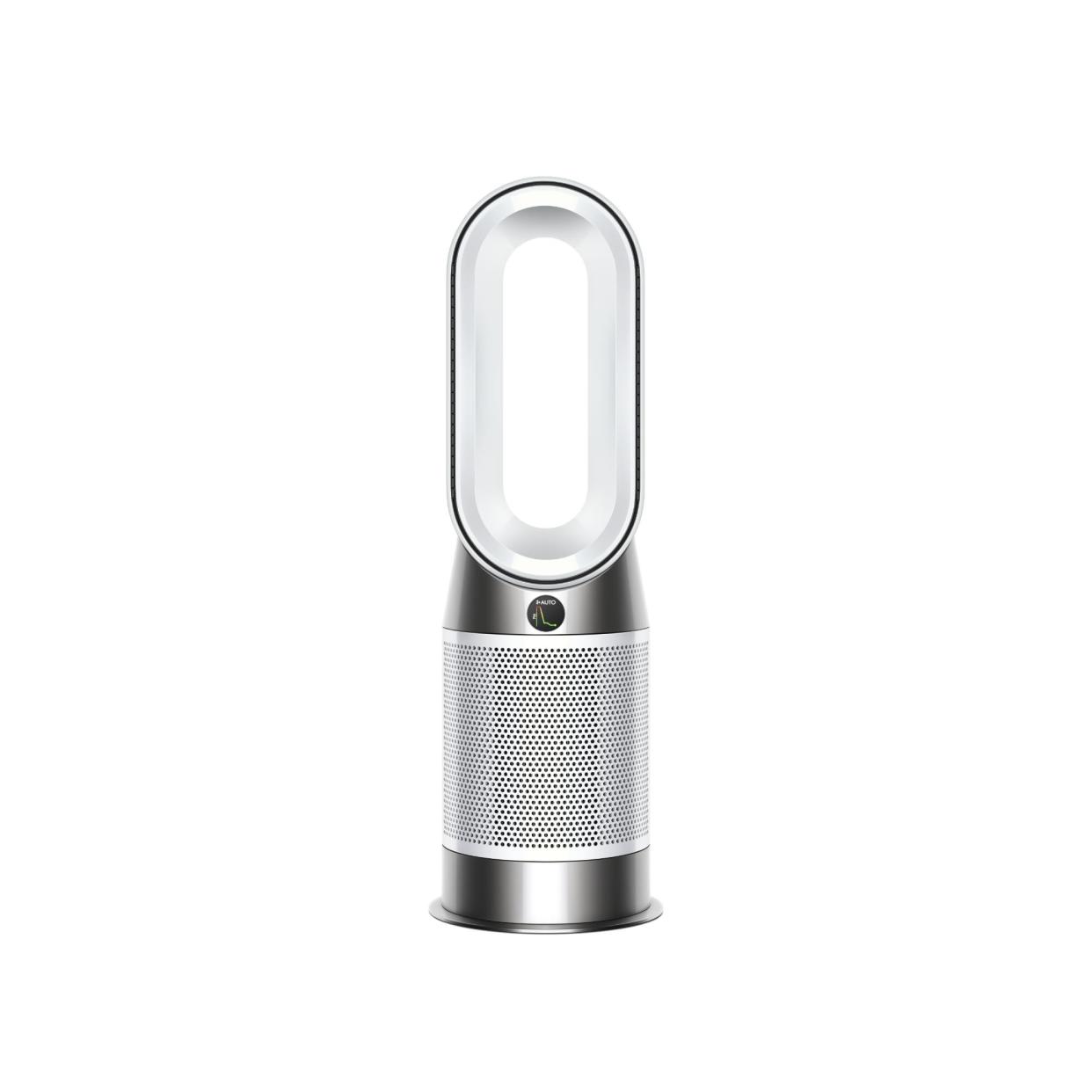
Dyson Purifier Hot+Cool
amazon.com
$529.48
AmazonCoway Airmega
This sleek air purifier uses a four-stage filtration system to pull out larger gunk, deodorize your air, and more to remove up to 99. 97% of particles 0. 3 microns or larger from your air. (That including pollen and other allergens.)
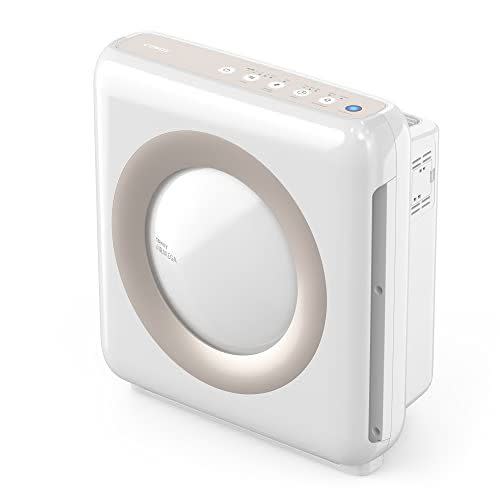
Coway Airmega
amazon.com
$159.99
AmazonMila Air Purifier
Designed for larger rooms up to 540 square feet, the Mila air purifier gives you plenty of information about your current air quality and how long it'll take to get to where you want it to be. Choose from a range of specialized filters, whether you have pets or are expecting.
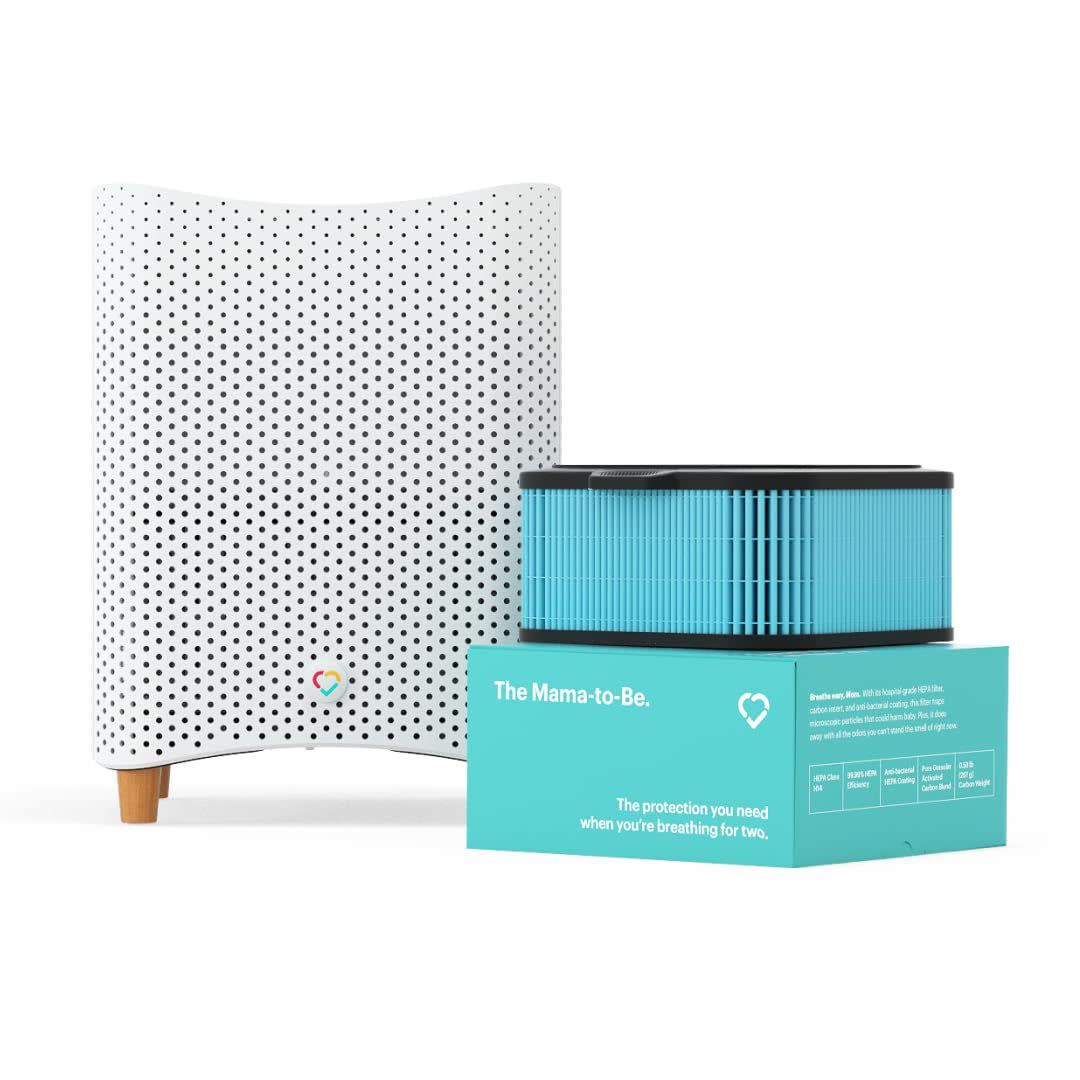
Mila Air Purifier
amazon.com
$419.99
AmazonConsider a dehumidifier
Dehumidifiers can help remove moisture from the air in damp areas like basements and prevent the growth of allergens like mold, Dr. Wright says. Not every home needs this, but if excess moisture in your place is an issue, it’s definitely a tool worth considering.
NineSky Dehumidifier
The NineSky dehumidifier has an 85-ounce water tank, making it a good choice for rooms up to 800 square feet. Enjoy features like sleep mode and auto shut-off to tailor your dehumidifying to your needs.
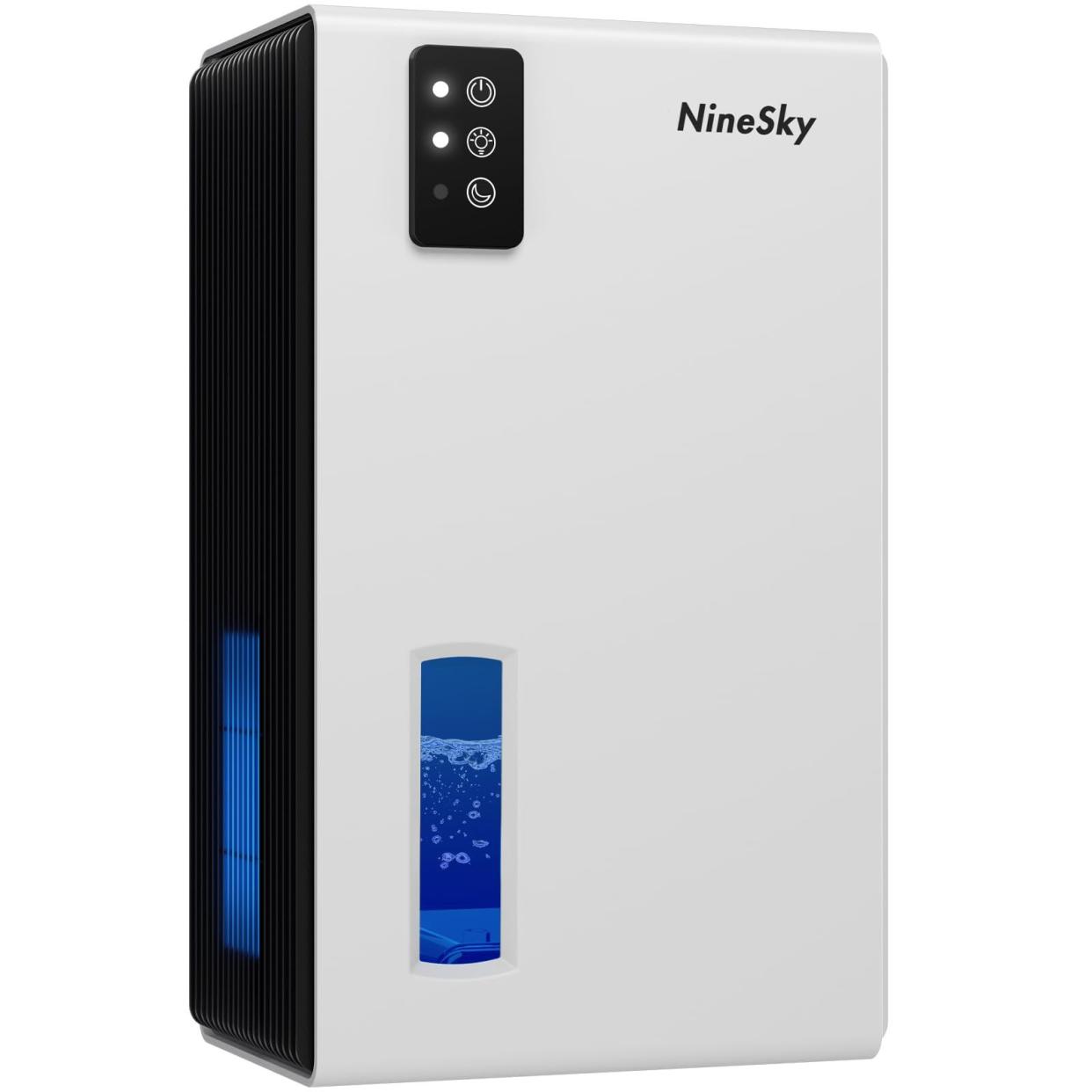
NineSky Dehumidifier
amazon.com
$76.99
AmazonTabyik Dehumidifier
The Tabyik dehumidifier is petite and designed to tackle smaller areas, like your bedroom or home office. Perch this on a desk or countertop and empty it as needed for humidity relief.
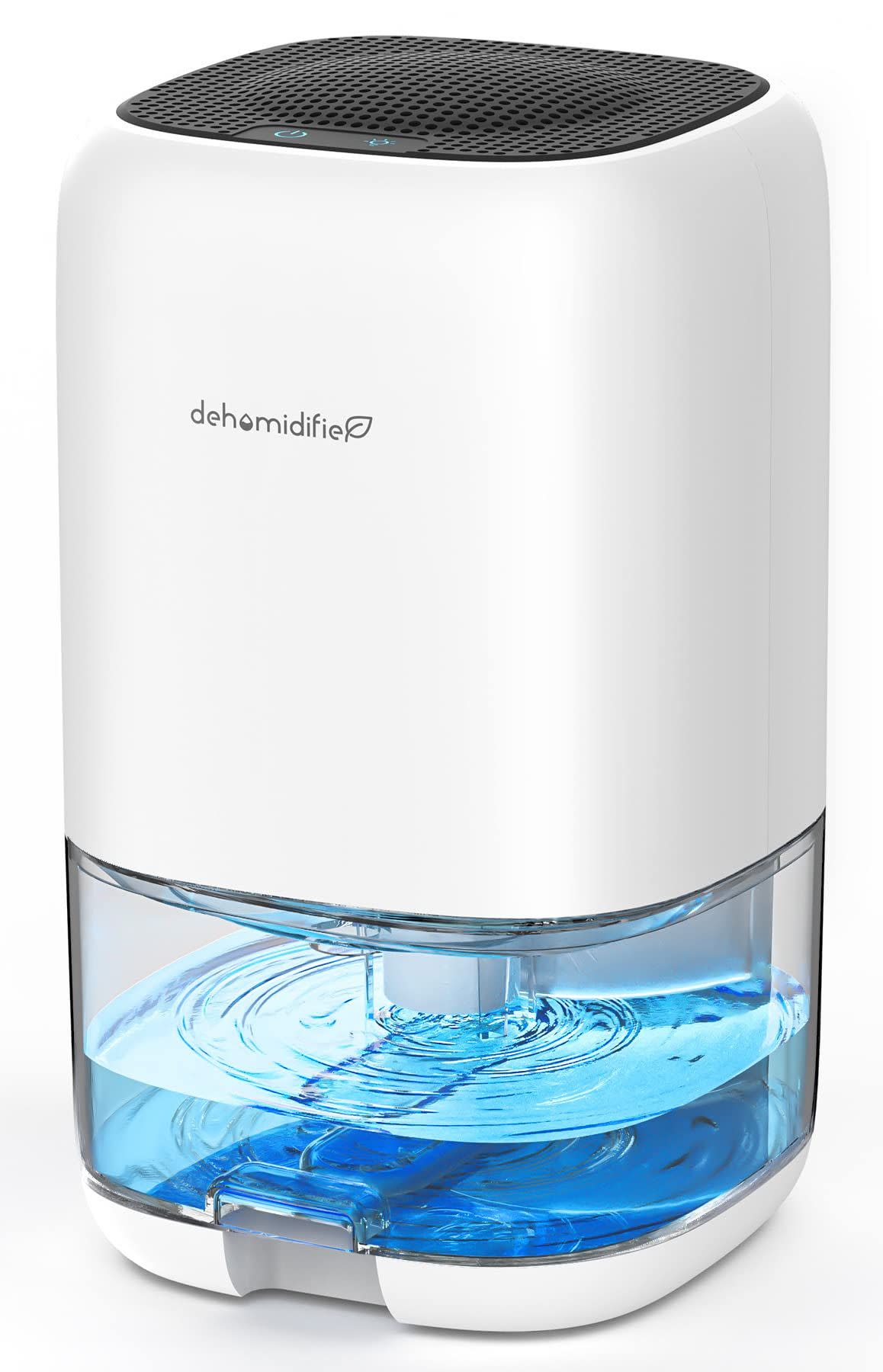
Tabyik Dehumidifier
amazon.com
$41.39
AmazonMidea Dehumidifier
Midea's popular dehumidifier covers up to 1,500 square feet, making it great for an entire floor of your home or your basement. This dehumidifier is Energy-Star certified, so it won't jack up your power bill, and is app-enabled.
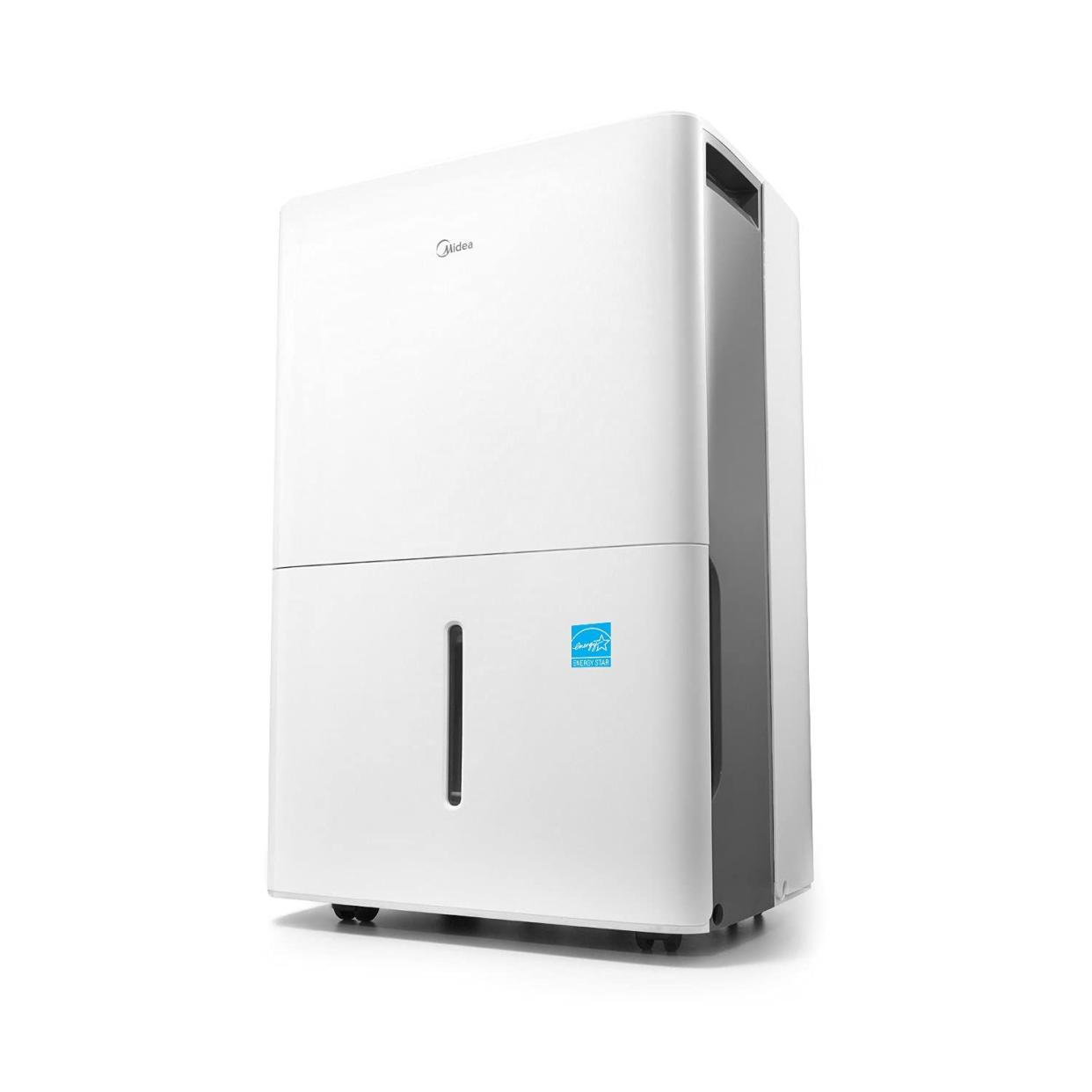
Midea Dehumidifier
amazon.com
$179.00
AmazonClean your sheets and mattress
“You also want to wash your bedding weekly in hot water and dry it in high heat because that will kill off dust mites,” Dr. Wright says. But she also points out that mattresses can harbor dust mites, too. That’s why she recommends swapping out your mattress every seven years. She says encasing your mattress and pillows in allergen-proof covers can also help.
Tackle pet dander
Pet hair and pet dander can end up just about everywhere, making it important to regularly vacuum and dust at home if you’re allergic to your pet. Another way to help tamp down on pet dander, per Dr. Wright: Bathe your pet once a week. Using the best vacuums for pet hair can also help pick up hair that’s already fallen.
Drink water
Without enough water, the human body struggles to function, and some animal studies suggest that dehydration can lead to an increase in histamines in the body—which there’s already an excess of during an allergic reaction. “Staying hydrated is good in general for your health, but when it comes to allergies, if you are taking antihistamines, those can also dry you out,” says Dr. Wright. “So you definitely want to stay on top of your water intake and make sure you stay hydrated.”
Manage stress
For some people, yoga is their go-to stress reliever. For others, it’s reading, doing jigsaw puzzles, or talking to a therapist. Find what works for you and, as hard as it may be with everything going on, do your best to carve out time for it. Studies show that stress can exacerbate allergic reactions so the more you can minimize what’s going on in your body, the better you may be.
Wash up when you get home
Even if you can’t see them, pollen and other allergens stick to your body while you’re out and about. That’s why Dr. Owens recommends washing your hands and face after you spend time outdoors. (It can also be helpful to pull your hair back if it’s longer, to make sure you keep pollen that could have gotten stuck in there away from your nose, mouth, and eyes.)
Shower when you get home if you can
While washing your hands and face will get rid of pollen stuck to places that are closest to your nose and mouth (or likely to touch those areas), showering is the best way to go if you have the time. “Showering helps rinse off pollen that sticks to our skin and hair during the day,” Dr. Wada says. “This gives our body a break from exposure during sleep which is the time our body is in recovery mode.” Note: It’s best to wash your hair, too, given that it’s right next to your nose and mouth and can also carry pollen.
Wear a mask outside
Masking up doesn’t just help lower your risk of getting viral illnesses—it can help with your allergies, too. “Face masks are very effective against allergens,” says Purvi Parikh, M.D., an allergist/immunologist with Allergy & Asthma Network.
Dr. Wada also recommends this hack. “Wearing a mask can also be helpful to filter out some of the pollen and mold in the air,” she says. “I have many patients that find this particularly helpful when they mow the lawn or do other yard work.”
Don’t touch your nose and face when you’re outside
Unfortunately, touching your face and eyes when you’re outside can rub pollen into those areas, upping your risk of allergy symptoms, according to the American College of Allergy, Asthma, & Immunology (ACAAI). Your best bet: Wash your hands before you touch your nose and eyes or, if you can’t get near soap and water, use a moist towelette first.
Try to stay inside after thunderstorms
Rain and pollen have a tricky relationship. Rain showers can temporarily clear pollen from the air, the ACAAI says. But thunderstorms can actually increase pollen counts since lightning, wind, and temperature changes can stir things up.
Remove excess moisture from your kitchen
Moisture can provide a breeding ground for mold and mildew in your home. And, if you’re allergic to them, you could be in for even more symptoms if you don’t do something about it. The American Academy of Allergy Asthma & Immunology (AAAAI) recommends using an exhaust fan on a regular basis to reduce moisture in your kitchen and empty your trash daily. It’s also a good idea to store food in sealed containers and get rid of moldy or out-of-date foods ASAP, the AAAAI says.
Use honey if you’re dealing with a cough—not as an allergy remedy
There’s a lot of chatter online about honey helping to reduce allergy symptoms, but allergists generally agree that this hack doesn’t work. Bees eat nectar and gather pollen produced by flowers, but these aren’t the pollens that cause most allergies (those are from trees, grasses, and weeds), the AAAAI says. Very little pollen from trees, grasses, and weeds would make it into honey, Dr. Owens says. “Many of the aeroallergens that cause symptoms in individuals are transmitted by wind; the allergens can blow quite far.,” she says. “Local honey likely has fewer of these allergens, so it may not be as effective at treating allergies as some suspect.”
Even if those pollens made it into your honey, the pollen protein changes when bees mix their food with enzymes. The honey is also processed, pasteurized, and digested by your stomach’s enzymes, which removes or breaks down pollen, the AAAAI says. You also wouldn’t take in enough pollen for your immune system to start to become desensitized to it.
Having honey is “not likely to be harmful,” Dr. Owens says, although she points out that it has a high sugar content. But if you have a cough from your allergies, she says you can have a spoonful of honey or mix it into some tea for soothing relief. “Honey is known to be an effective, natural cough suppressant,” she says.
Natural solutions that don’t work
Not every home remedy you hear about is a home run. These often-touted natural solutions don’t have the research to back up their use.
Honey: Again, it may help with a cough but not much else. “Local honey may be delicious but does not contain enough of the correct types of pollen to have any effect close to that of immunotherapy,” says Dr. Wada.
Essential oils: “There’s no evidence to suggest that essential oils can be beneficial to improving your allergies,” says Dr. Wright. In fact, she says the strong scents can actually worsen allergy symptoms in people whose nasal passages are overreactive.
Supplements: “I don’t routinely recommend herbal or homeopathic supplements to treat allergies,” says Dr. Wada. “The data doesn’t support their use and since they are unregulated it is impossible to know if what is listed on the bottle is actually what is in the bottle.”
Precautions to take when using home remedies for allergies
Home remedies for allergies are meant to help support the treatment plan that you and your allergist agree to. What they can’t do is help if you’re having a serious allergic reaction, like anaphylaxis, which is a medical emergency.
In case you’re not familiar with anaphylaxis, symptoms can include trouble breathing, hives or swelling, tightness of the throat, and a hoarse voice, the AAAAI says. It can also include gastrointestinal issues like nausea, vomiting, stomach pain, and diarrhea. Dizziness, fainting, low blood pressure, and even cardiac arrest may also happen. Symptoms can come on quickly and progress fast, the AAAAI says.
If you’ve had anaphylaxis in the past, your doctor should prescribe you an epinephrine autoinjector to help with future reactions. And, if you experience symptoms, it’s important to use the medication immediately. That should be followed by a visit to your local ER by ambulance, where you can be monitored, the AAAAI says.
When to see an allergist
If home remedies don’t seem to alleviate your allergy symptoms, there’s no reason to continue suffering. Schedule an appointment with an allergist to discuss medical solutions. “I think it is really helpful to find an allergist that you can partner within your care and letting him/her know your goals of care,” says Dr. Wada. “Education and information can be incredibly empowering and meeting with an allergy expert is going to help you understand all the options available to treat your symptoms.” For instance, immunotherapy in the form of allergy shots, drops, or tablets that contain regimented doses of specific allergens could provide long-lasting relief. “Over time, the body learns to ignore these triggers rather than fight them,” explains Dr. Wada. Dr. Parikh agrees. “Allergen immunotherapy is a great option to decrease and improve your allergies over time,” she says.
You Might Also Like
